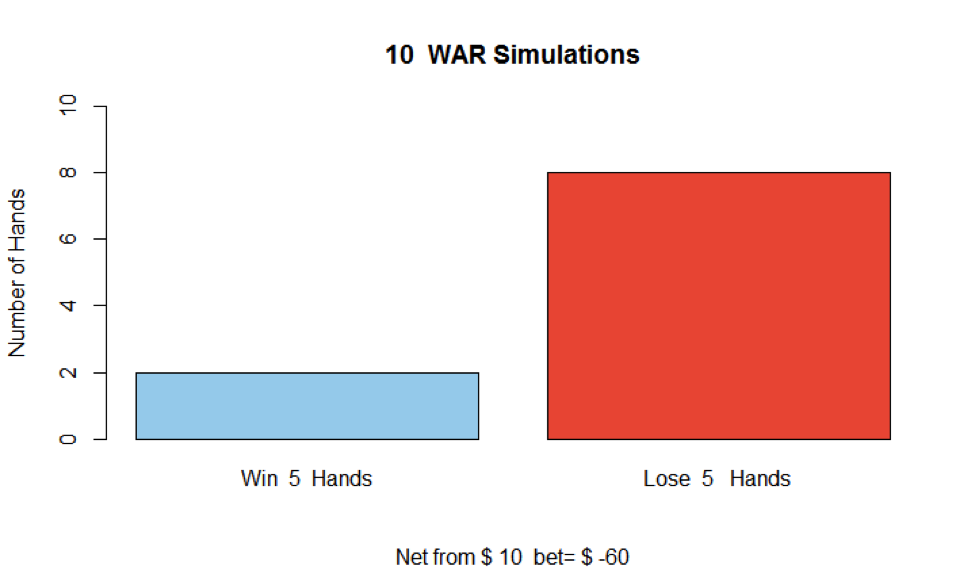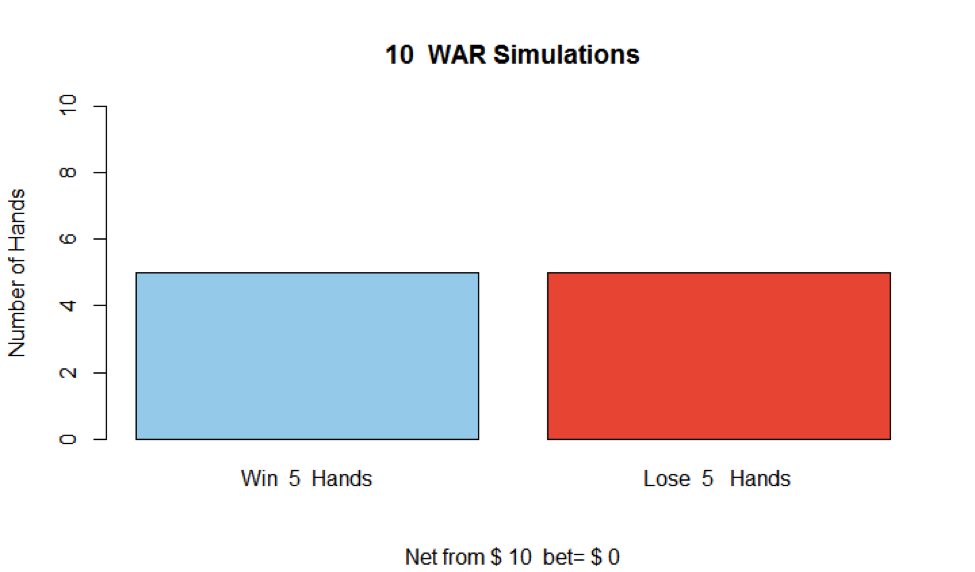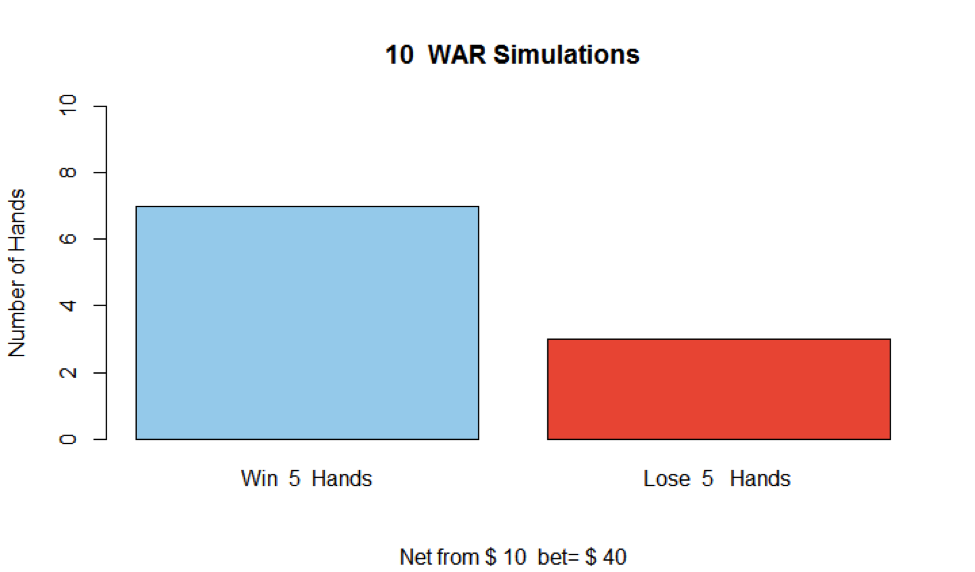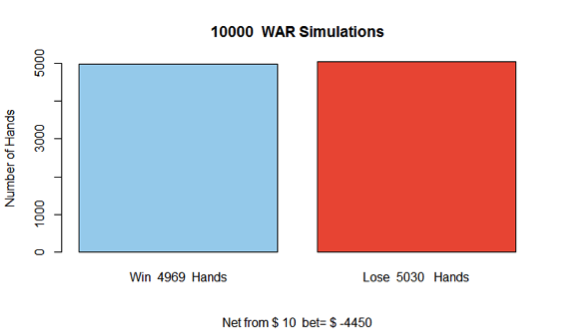On my flight to Las Vegas, I considered how I could best use the little money in my pocket. I could gamble it in the casino, or I could save it for a Christmas present for my mother. I remember my successes in the simple card game War as a kid, and I remembered that this is one of the many games you can play in Vegas. The game is simple: you get a card, the dealer gets a card, whoever’s card is higher wins. This sounds like a fair game.
I learned in my simulations class how to create a simple Monte Carlo simulation and was able to see how the little money I had could possibly pay out, or not, while playing War before setting foot in a casino.
I created the simulation so I could easily change the bet amount and the number of hands I wanted to play.
However, my first iteration of the simulation was too simple, it only cared if you won or lost. It failed to take in account what happened if you tied the dealer. This is where the “house” (aka the casino) gets its advantage. When you tie the dealer you have two options; First, you can surrender half your bet, or second, you can double your bet and play another round with the dealer. If you go with the second option, and you beat the dealer you only win the amount of your original bet. However, if you lose, you give up double what your original bet was. Considering these ties made all the difference in the simulation outcomes.
After the new rules were added to the simulation two things became apparent:
- In the short run it was the “luck” of the draw. As you can see from the following three simulations of 10 hands with $10 bets, the outcomes can be anything from winning $40 to losing $60 (you can win more, but you can also lose all). The take away from a few simulations is anything can happen while only playing a few hands.



- In the long run you will lose. I changed the number of hand played to 10,000 (no way I had enough money for this many hands). No matter how many times I ran the simulations, I always lost. The casino’s advantage, when you tie the dealer, really demonstrated itself in the long run.
After creating these simulation it was clear that my money would be better spent on buying my mom a Christmas present. I was not going to get rich playing War in Las Vegas.
Columnist: Chas Stikeleather


